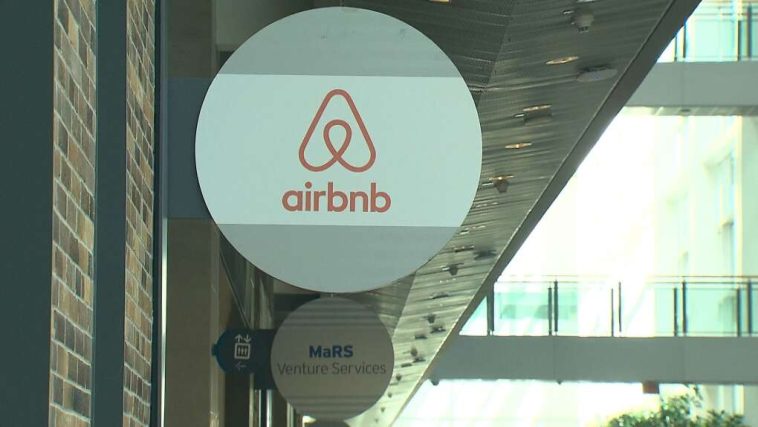Introduction.
Managing an Airbnb in your hometown is one thing, but handling one remotely? That’s a whole different game.
With the rise of remote property management technology and third-party services, though, it’s more feasible than ever to make it work.
Many people own and manage Airbnbs miles—or even states—away from where they live, and with the right strategies, you can too.
If you’re considering investing in a vacation rental out of state or already have one, you’ll need some efficient, proven techniques to keep things running smoothly, keep your guests happy, and protect your income.
Let’s dive into the key steps to remotely managing an Airbnb, from setting up reliable local support to keeping up with guest communication and everything in between.
How Do I Set Up an Airbnb for Remote Management?
When you’re managing an Airbnb far from home, everything starts with a strong foundation. Here are a few essential steps:
- Choose the Right Property
Look for areas with strong tourism or business travel traffic and good occupancy rates. Tools like AirDNA can provide insights into short-term rental demand in specific locations, from average nightly rates to annual occupancy percentages. Places with high occupancy rates will give you more opportunities for bookings, which means more income to cover your property management costs. - Set Up an Efficient Check-In System
Install a smart lock or keyless entry system so guests can check in and out seamlessly. Many systems, like August Smart Lock or Schlage Encode, allow you to create time-sensitive codes for each guest, adding convenience and extra security. - Find Reliable Local Help
You’ll need a dependable team nearby—think cleaners, handymen, and even a backup property manager. Cleaning is crucial for guest satisfaction, so hiring a professional cleaning service that specializes in Airbnb properties can help maintain consistency. - Automate What You Can
Managing things like guest communication, pricing, and even cleaning schedules is easier with tools like Hospitable (formerly Smartbnb), Guesty, or PriceLabs. These platforms let you automate messages, sync calendars, and even adjust prices based on local demand. - Build a Financial Buffer
Remote management can come with unexpected costs—from last-minute repairs to peak season cleaning fees. Setting aside a financial buffer helps absorb these unplanned expenses without cutting into your profits.
Pros and Cons of Managing an Airbnb Out-of-State
Managing an out-of-state Airbnb can be rewarding, but it also comes with unique challenges. Here are some upsides and potential downsides to keep in mind.
Pros
- Access to Lucrative Markets: You’re not limited to your local market and can capitalize on high-demand locations.
- Flexible Lifestyle: With remote management, you can be anywhere and still oversee your property.
- Diversified Real Estate Portfolio: Out-of-state rentals diversify your real estate investments, which can strengthen your portfolio.
Cons
- Increased Operational Costs: Expect to pay for more services like local cleaning and maintenance crews.
- Less Control: There’s a level of trust you need to have in your local support team.
- Risk of Emergencies: Handling emergencies, like a broken appliance or plumbing issue, can be more complicated from afar.
Essential Tools for Managing a Remote Airbnb
Using the right tools can make or break your remote Airbnb management experience. Here’s a look at some essential ones:
- Communication: Use automated messaging tools like Hospitable or Hostaway to keep guests updated from booking confirmation to check-out instructions.
- Smart Home Tech: Keyless entry systems and security cameras help you keep an eye on things and ensure guest safety without needing to be on-site.
- Dynamic Pricing Tools: Tools like Beyond Pricing or Wheelhouse can optimize your rates based on factors like season, demand, and local events to maximize revenue.
- Guest Experience Management: Apps like TouchStay allow you to create a digital guidebook with house rules, local recommendations, and check-out instructions, enhancing the guest experience.
Tips for Smooth Remote Management
- Build Relationships with Local Vendors
Strong relationships with local vendors are essential for smooth operations. You’ll want to establish a rapport with your cleaners, handymen, and any other service providers to make sure they’re as invested in your property as you are. - Stay Proactive with Maintenance
Routine check-ups on plumbing, electrical systems, and HVAC can prevent costly repairs down the line. If you can, visit the property periodically to inspect it firsthand and take care of any potential issues. - Respond Quickly to Guests
Remote management can make guests nervous if they sense that you’re far away. Quick responses help reassure them and show that you’re an engaged host, even if you’re not physically nearby. Consider setting up automatic responses or hiring a co-host to handle messaging. - Keep Up with Local Regulations
Short-term rental laws can change, and staying informed about local regulations is key to avoiding fines. Some areas have strict requirements for remote hosts, like hiring a local agent or manager, so make sure to understand what’s expected in your property’s location.
Frequently Asked Questions
Q: Can I manage an Airbnb remotely without a property manager?
A: Yes, with the right tools and local support, you can manage an Airbnb without a traditional property manager. You’ll need reliable contacts for cleaning, repairs, and possibly a co-host for guest support, but it’s doable and can save you some management fees.
Q: How much should I budget for an out-of-state Airbnb?
A: Plan for extra costs such as higher cleaning fees, maintenance, and potentially a co-host. A safe estimate is setting aside 15-20% of your rental income to cover unexpected expenses and property upkeep.
Q: Are there specific platforms for managing Airbnb remotely?
A: Yes, platforms like Hospitable, Guesty, and PriceLabs cater to short-term rental management and can handle everything from messaging to dynamic pricing. Look into each to see which best fits your needs and budget.
Q: How do I handle emergencies when I can’t be on-site?
A: Having a backup contact, such as a trusted neighbour or local friend, can be a lifesaver for emergencies. You can also set up a relationship with a local property management company that offers a la carte services if you only need them occasionally.
Conclusion.
Managing an Airbnb out of state may seem daunting, but with the right planning, it can be a rewarding venture that lets you tap into profitable markets beyond your immediate location.
Relying on smart tech, local help, and the right tools makes remote management not just possible but potentially seamless.
So, is managing an Airbnb from afar the right move for you? Would it bring flexibility and income, or do the potential challenges outweigh the perks?





GIPHY App Key not set. Please check settings